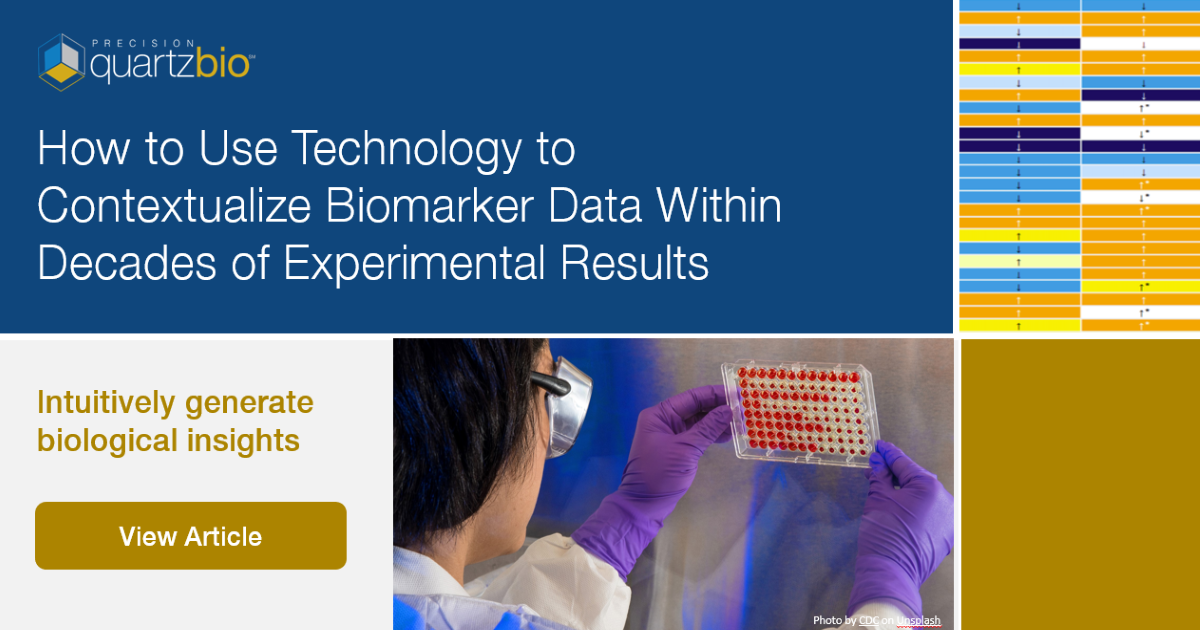
July 29, 2021 — Translational research teams producing large datasets from biomarker-rich trials quickly face the next challenge: generating actionable insights from their data.
As we described in a previous case study, we have been working with many teams to enable deep mechanistic insight generation from their biomarker data to aid in signature development for selecting patients, predicting therapeutic response, and informing key development decisions.
One way we approach this is through the application of prior knowledge. This is done using QuartzBio’s proprietary knowledgebase, which contains over 400,000 results curated from both peer-reviewed papers and public databases like Expression Atlas and Gene Expression Omnibus. Having a network of this size enables scientists to contextualize their data and leverage the findings from other groups that were also studying their target pathway or disease of interest.
QuartzBio’s biomarker analysis projects include
- Identification of the appropriate indications based on disease biology (see Figure 1 below)
- Characterizing unexpected off-target effects of a drug
- Modeling of predictive biomarkers
- High resolution insights about disease-driving mechanisms within and across individual patients
We have also developed point-and-click tools to enable translational and clinical experts in the groups we work with to access the knowledgebase, integrate their own data, run insight-generating algorithms and then explore the results. Because many sponsor groups have been working with QuartzBio from the data generation stage, using the platform to harmonize and centralize their clinical, PK, and biomarker data, it is particularly easy to further integrate these datasets with the QuartzBio knowledgebase, empowering them to generate powerful insights.
In the months ahead, we’ll be meeting with select translational research teams to optimize the way QuartzBio works with them to manage high (and low) throughput biomarker analysis for indication matching, predictive biomarker work, and deep dives into disease biology.
Contact us to schedule a conversation with our team on this topic, where we can demonstrate the power of this interactive technology and share specific recommendations for your team.
Interacting with the QuartzBio Knowledgebase: Screening Therapies Against COVID-19 Models

Figure 1. Interactive interrogation of the QuartzBio knowledgebase was used to predict therapeutic response in preclinical and clinical COVID-19 models. As shown in the screenshot here, the QuartzBio platform proved to be a sensible and rapid way to compare and contrast signaling mechanisms. Comparing the gene expression signatures for C lung biopsies from COVID-19 patients, pre-clinical OVID-19 models (A549 and NHBE cell lines infected with COVID-19) and the COVID-infected A549 cells line model-treated with ruxolitinib, researchers could conclude that JAK/STAT inhibition with ruxolitinib reversed many of the mechanisms dysregulated by COVID-19 in the A549 model. We were able to demonstrate that the A549 cell line model reflected COVID-19 biology and could be used for screening drugs for mechanistic compatibility. Rapid selection of preclinical models can reduce costs and time to clinic.

